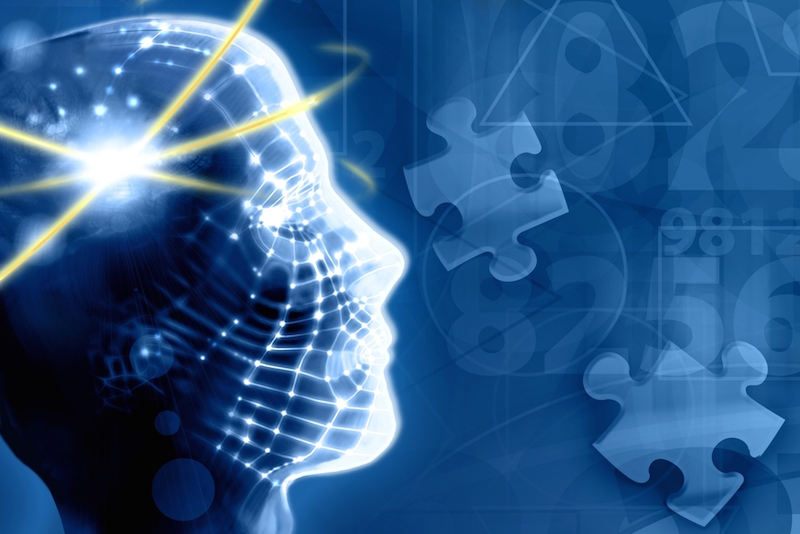'Brain Training' Games May Be No Better Than Video Games, Study Finds

Brain-training games such as those from Lumosity may not boost people's overall thinking abilities or help them make "smarter" decisions, a new study suggests.
Researchers analyzed information from 128 young adults who were randomly assigned to play either Lumosity games or computer video games for 10 weeks. The makers of Lumosity products claim that the games may boost people's cognitive functions, such as memory, attention and problem solving; the program adjusts the games' difficulty depending on people's performance. In contrast, the video games aren't intended to improve cognitive performance and don't adjust in difficulty.
The study found that the people who played Lumosity games did get better at those specific games. But the people didn't perform any better on standard tests of memory, attention or other cognitive tasks, as compared to those people who played the video games. [10 Ways to Keep Your Mind Sharp]
Participants who played the Lumosity games also failed to show differences in brain activity during decision-making tasks in a lab, and they were no less likely to make risky or impulsive decisions, as compared to those who played the video games.
The findings suggest that in young adults such commercial brain-training games appear "to have no effects beyond those of standard video games" on brain activity, decision making or cognition, the researchers, from the University of Pennsylvania, wrote in the July 10 issue of The Journal of Neuroscience.
Despite the claims that the makers of brain-training games have made, it has not been clear whether these games actually help people with real-world thinking or whether people who play the games simply get better at completing the specific tasks in the games, the researchers said.
In 2016, Lumos Labs (maker of Lumosity games) paid $2 million dollars to settle charges of false advertising brought by the Federal Trade Commission. The company had said that its games could lead to success in school and at work and delay the declines in thinking abilities that normally come with age. The company now says on its website that more research is needed to determine whether the games help people with tasks in their everyday lives.
Sign up for the Live Science daily newsletter now
Get the world’s most fascinating discoveries delivered straight to your inbox.
Some small studies have suggested that brain-training games may shift people's decision-making away from immediate and more risky rewards and toward delayed rewards or less risky choices. In the new study, the researchers set out to test the hypothesis. If it turned out to be true, it could have implications for treating certain health conditions, such as obesity and addiction, which are related to people's decision-making behavior, the researchers said.
In the study, participants answered questions, both before and after the 10-week training period, intended to gauge their tendency to choose immediate rewards. For example, participants were asked to choose between receiving $20 today and $40 in a month. They answered these questions while they were in a brain scanner to monitor their brain activity. The participants also completed a battery of standard cognitive tests assessing memory, attention and other brain functions.
Contrary to the hypothesis, the participants who played Lumosity games didn't show a shift in their tendencies to choose (or not choose) immediate rewards, and didn't show changes in brain activity, compared to the group that played video games. The groups had similar scores on their cognitive tests too. [8 Tips for Healthy Aging]
What's more, when the researchers had a third group of participants perform the same cognitive tests several different times, without any brain-training or video games in between the tests, this group had similar scores to both the Lumosity and video game groups.
In a statement provided to Live Science, Lumos Labs said that the new study looked at a novel idea — whether cognitive training was associated with decision making or risk sensitivity. The company encourages novel research, and this is why Lumos Labs provided the researchers with free access to the Lumosity training program for the study, the statement said.
But "it's a giant leap to suggest this study proves cognitive training is 'no better than video games at improving brain function,'" as the researchers who conducted the study suggested, the statement said. Lumos Labs noted that the study had a narrow focus and that many questions remain, including "how, why and in what circumstances cognitive training is efficacious."
The researchers noted that their study involved only young, healthy adults ages 18 to 35, and so it's possible that cognitive-training games have stronger effects among children, older adults or people with certain health conditions.
Original article on Live Science.

Rachael is a Live Science contributor, and was a former channel editor and senior writer for Live Science between 2010 and 2022. She has a master's degree in journalism from New York University's Science, Health and Environmental Reporting Program. She also holds a B.S. in molecular biology and an M.S. in biology from the University of California, San Diego. Her work has appeared in Scienceline, The Washington Post and Scientific American.










